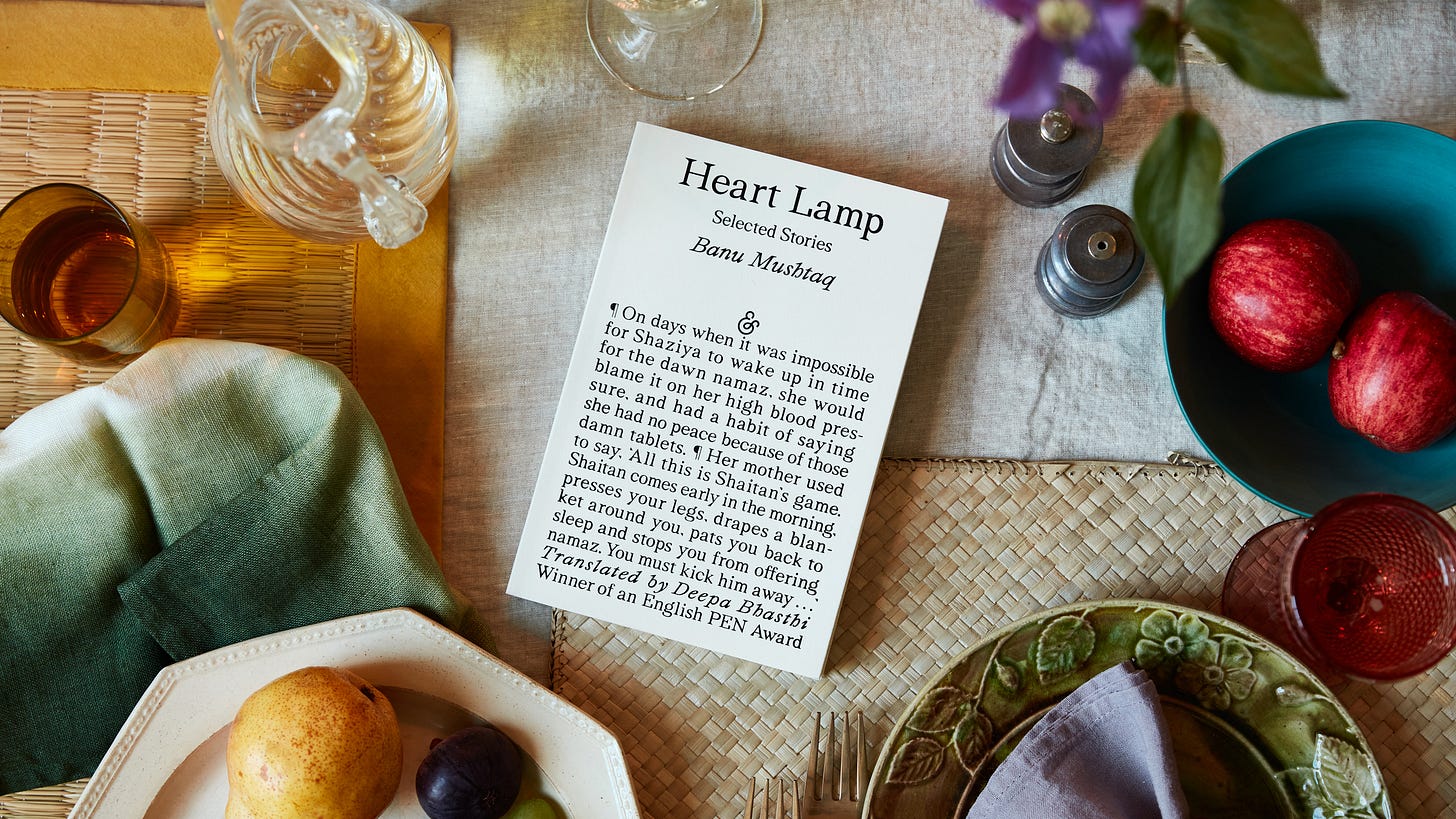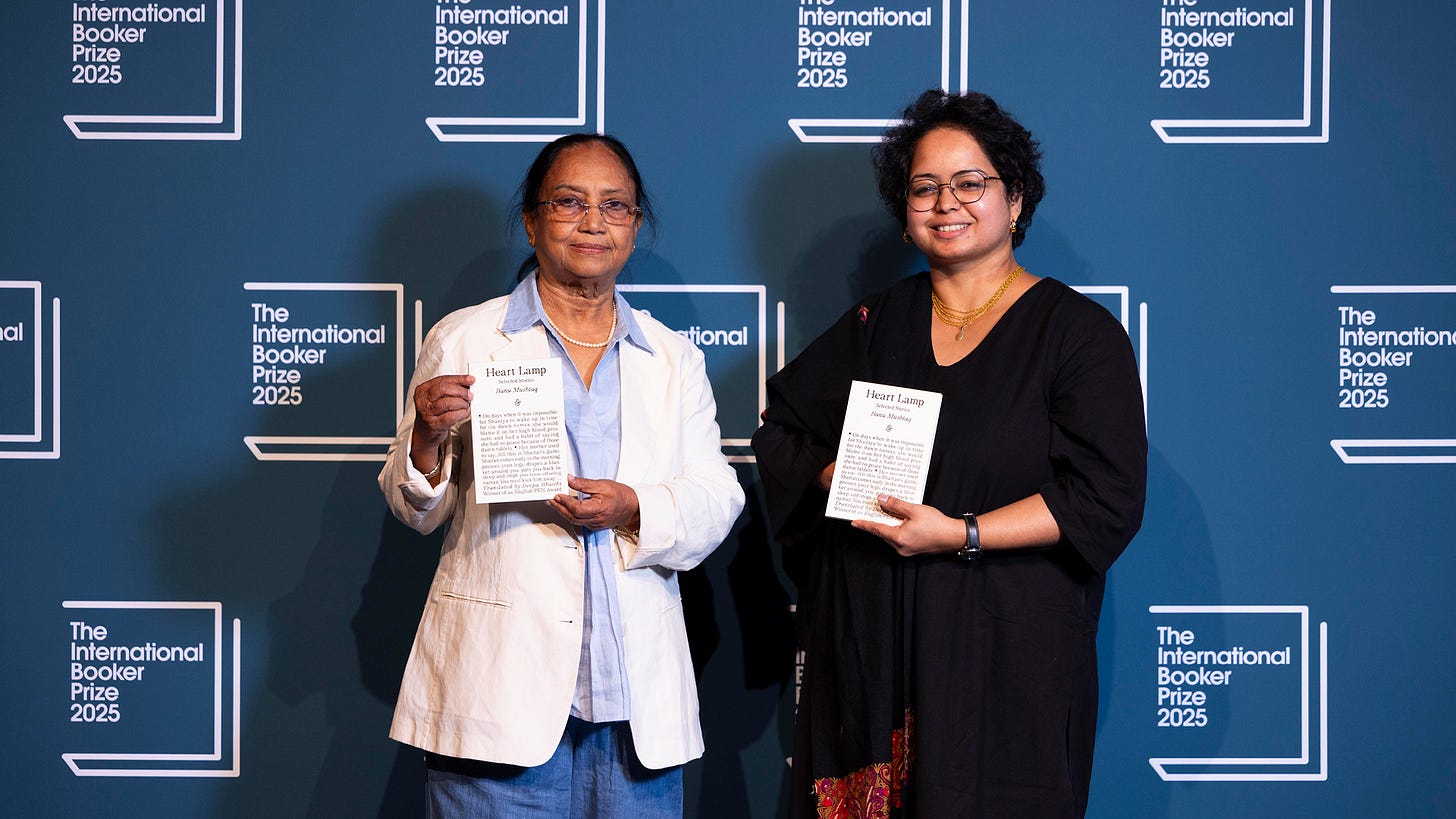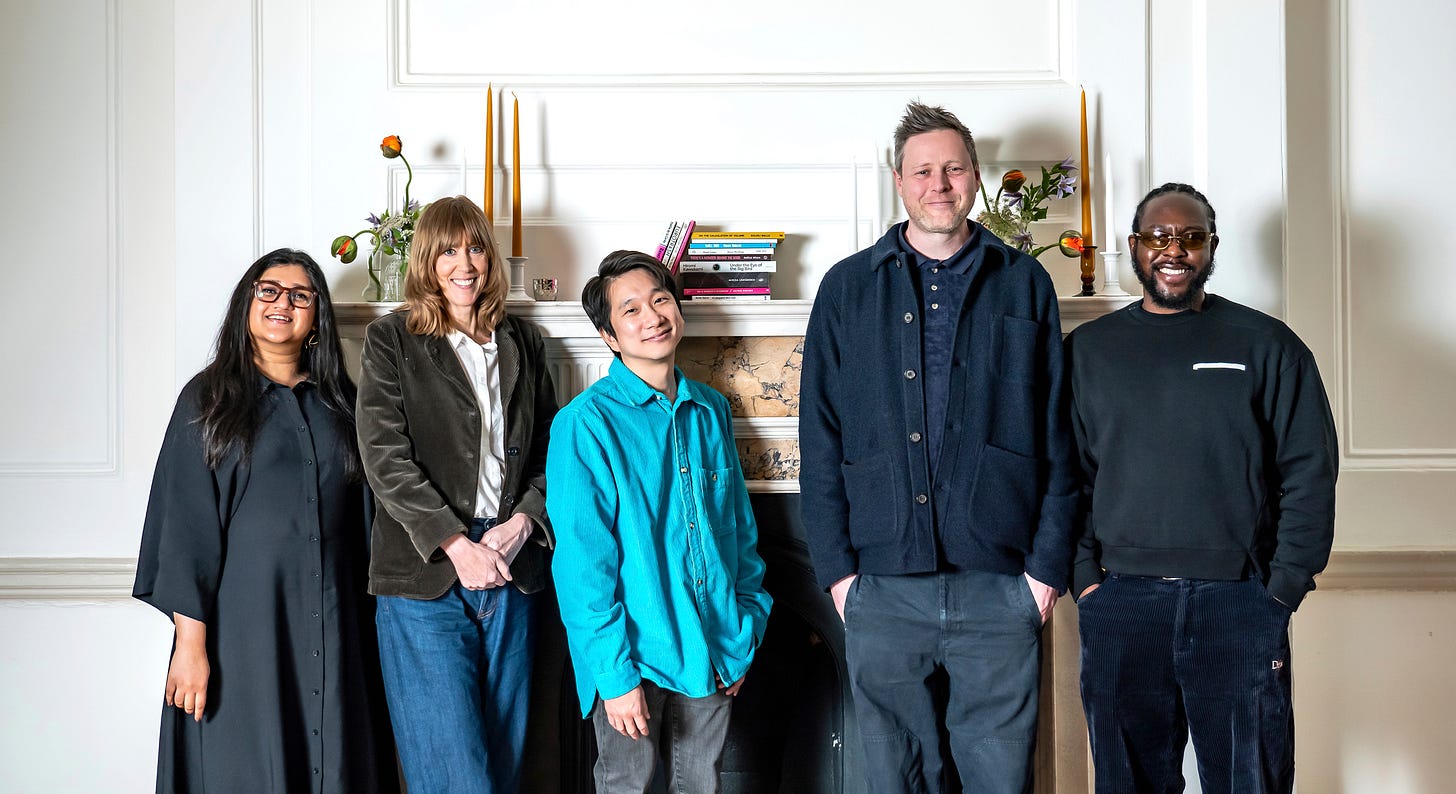Heart Lamp wins the International Booker Prize 2025
A collection of 12 short stories by Banu Mushtaq, translated from Kannada by Deepa Bhasthi, has tonight won this year’s International Booker Prize
We write to you live from the International Booker Prize 2025 ceremony at Tate Modern in London where tonight Heart Lamp becomes the first short-story collection to win the world’s most influential award for translated fiction. The £50,000 prize is split 50:50 between author Banu Mushtaq and translator Deepa Bhasthi, giving each equal recognition.
Announcing Heart Lamp as winner, Chair of the 2025 judges Max Porter said the book ‘is something genuinely new for English readers: a radical translation’ of ‘beautiful, busy, life-affirming stories’.
Here's everything you need to know about the winning book, its author and translator.
Why did Heart Lamp win?
Max Porter, Chair of the International Booker Prize 2025 judges, said:
‘Heart Lamp is something genuinely new for English readers. A radical translation which ruffles language, to create new textures in a plurality of Englishes. It challenges and expands our understanding of translation.
‘These beautiful, busy, life-affirming stories rise from Kannada, interspersed with the extraordinary socio-political richness of other languages and dialects. It speaks of women’s lives, reproductive rights, faith, caste, power and oppression.
‘This was the book the judges really loved, right from our first reading. It’s been a joy to listen to the evolving appreciation of these stories from the different perspectives of the jury. We are thrilled to share this timely and exciting winner of the International Booker Prize 2025 with readers around the world.’
What’s Heart Lamp about?
In a collection of 12 short stories, Heart Lamp chronicles the everyday lives of women and girls in patriarchal communities in southern India.
Originally published in the Kannada language between 1990 and 2023, Banu Mushtaq’s portraits of family and community tensions testify to her years tirelessly championing women’s rights and protesting all forms of caste and religious oppression.
Mushtaq’s writing is at once witty, vivid, moving and excoriating, building disconcerting emotional heights out of a rich spoken style. It’s in her characters – the sparky children, the audacious grandmothers, the buffoonish maulvis and thug brothers, the oft-hapless husbands, and the mothers above all, surviving their feelings at great cost – that she emerges as an astonishing writer and observer of human nature.
Who are the author and translator?
Banu Mushtaq, author
Banu Mushtaq is a writer, women’s rights activist and lawyer in the state of Karnataka, southern India. Heart Lamp is the first book-length translation of Mushtaq’s work into English. She becomes the second Indian writer to win the International Booker Prize, while Heart Lamp is the first winner to be translated from Kannada, a major language spoken by an estimated 65 million people.
Deepa Bhasthi, translator
Deepa Bhasthi is a writer and literary translator based in Kodagu, southern India. Bhasthi’s translation of Banu Mushtaq’s stories was a winner of English PEN’s ‘PEN Translates’ award. She has called her process for Heart Lamp, ‘translating with an accent’, and she becomes the first Indian translator to win the International Booker Prize.
What have they said about Heart Lamp?
Banu Mushtaq said:
‘My stories are about women – how religion, society, and politics demand unquestioning obedience from them, and in doing so, inflict inhumane cruelty upon them, turning them into mere subordinates. The daily incidents reported in the media and the personal experiences I have endured have been my inspiration. The pain, suffering, and helpless lives of these women create a deep emotional response within me. I do not engage in extensive research; my heart itself is my field of study.’
Deepa Bhasthi said:
‘For me, translation is an instinctive practice, and each book demands a completely different process. With Banu’s stories, I first read all the fiction she had published before I narrowed it down to the ones that are in Heart Lamp. I was lucky to have a free hand in choosing what stories I wanted to work with, and Banu did not interfere with the organised chaotic way I went about it.’
What else have the judges said?
‘In a dozen stories – written across three decades – Banu Mushtaq, a major voice within progressive Kannada literature – portrays the lives of those often on the periphery of society: girls and women in Muslim communities in southern India.
‘These stories speak truth to power and slice through the fault lines of caste, class, and religion widespread in contemporary society, exposing the rot within: corruption, oppression, injustice, violence. Yet, at its heart, Heart Lamp returns us to the true, great pleasures of reading: solid storytelling, unforgettable characters, vivid dialogue, tensions simmering under the surface, and a surprise at each turn.
‘Deceptively simple, these stories hold immense emotional, moral, and socio-political weight, urging us to dig deeper.’
What have the critics said?
Lucy Popescu, Financial Times:
‘Mushtaq’s compassion and dark humour give texture to her stories. These deceptively simple tales decry the subjugation of women while celebrating their resilience. Bhasthi’s nuanced translation retains several Kannada, Urdu and Arabic words, eloquently conveying the language’s enduring tradition of oral storytelling’
Kanika Sharma, Vogue India:
‘Though the International Booker Prize is not the first time Mushtaq’s work is up for celebration – ‘Kari Nagaragalu’, her story about a Muslim woman deserted by her husband, was adapted into a film in 2003 and earned the lead a National Film Award for Best Actress – recognition by a wider audience for this major literary voice is long overdue’.
John Self, The Guardian:
‘The flexibility of the prize – it’s not just for novels – is exemplified in Banu Mushtaq’s collection of stories, Heart Lamp. This wonderful collection would be a worthy winner, though history is against it: stories have never taken the prize before.’
Shubhangi Shah, The Week:
‘In fact, apart from everything else, what strikes the most is the vivid imagery Mushtaq creates throughout the book, which takes you deep into the women’s personal spaces. It reads as if one is inside the home, as a silent spectator, as events unfold.’
Watch Ambika Mod read from Heart Lamp
Read an extract from Heart Lamp
‘From the concrete jungle, from the flamboyant apartment buildings stacked like matchboxes to the sky, from the smoke-spewing, hornblaring vehicles that were always moving, day and night, as if constant movement was the only goal in life, then from people, people, people – people with no love for one another, no mutual trust, no harmony, no smiles of recognition even – I had desperately wanted to be free from such a suffocating environment. So, when Mujahid came with news of his transfer, I was very happy, truly.’
Have you read Heart Lamp or is it on your TBR pile? We’d love to know your thoughts on the International Booker Prize-winning novel in the comments below.










What a stunning recognition for a work that pulses with quiet intensity and deep resonance. Heart Lamp feels like a reminder that literature, at its most powerful, listens more than it speaks—holding space for grief, memory, and the sacred rhythm of survival. Congratulations to the entire team behind this luminous translation.
Exciting! I’d like to read this, it sounds beautiful